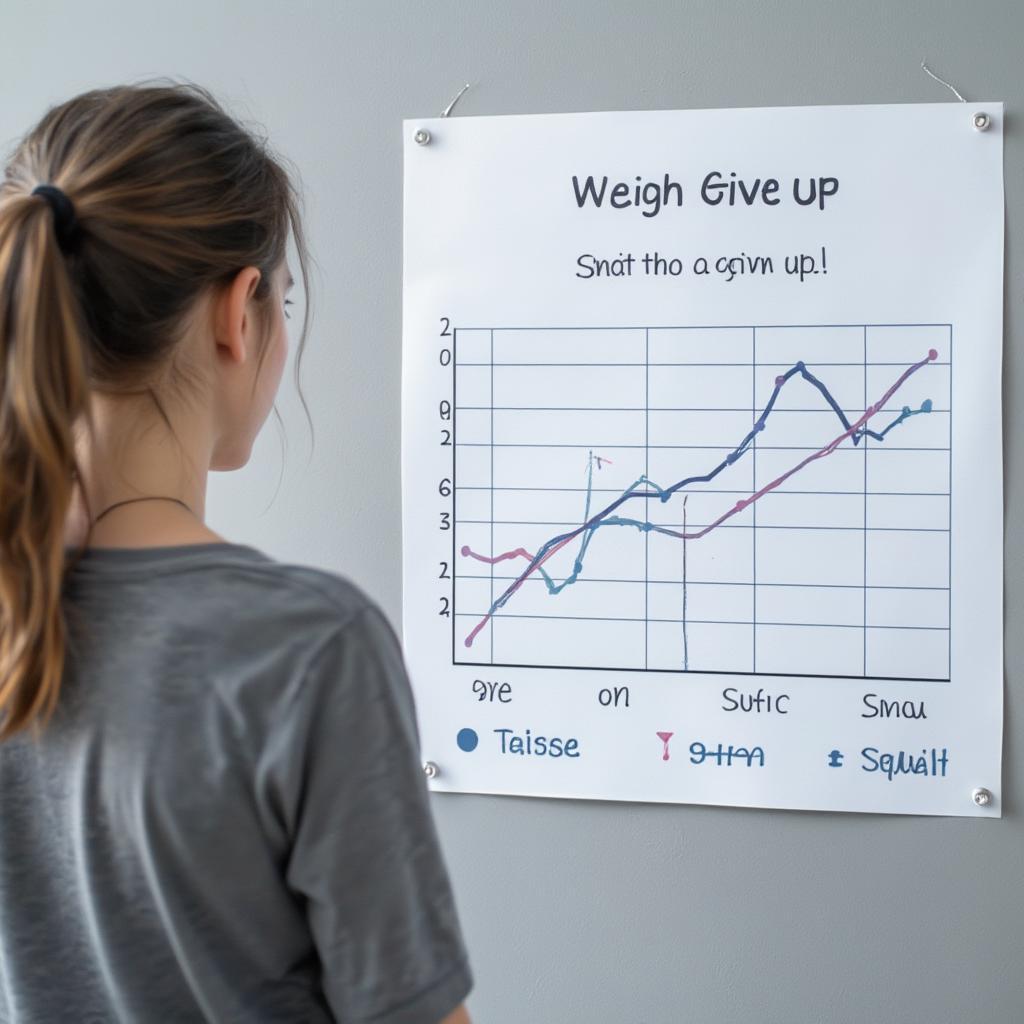How to Lose Weight Super Fast Without Exercise: Is it Really Possible?

The quest for rapid weight loss without breaking a sweat is a common desire. But is it truly achievable to lose weight super fast without exercise? This article will explore the realities behind this tempting concept, separating fact from fiction and offering practical, sustainable strategies for those aiming for weight management without intense physical activity.
Understanding the Fundamentals of Weight Loss
Weight loss, at its core, is about creating a calorie deficit. This means consuming fewer calories than your body burns. While exercise is a fantastic tool for increasing calorie expenditure, it’s not the only way to achieve this. Diet plays an incredibly significant role, and sometimes it may just be the best way. Let’s break down the primary factors influencing weight, particularly when exercise is not the immediate priority.
- Calorie Intake: The amount of food you eat directly affects the number of calories you consume. Reducing your caloric intake is the cornerstone of weight loss.
- Metabolic Rate: Your metabolism determines how quickly your body burns calories. Factors like age, sex, genetics, and muscle mass influence this rate. While you can’t change all of these factors, understanding them is key.
- Hormonal Balance: Hormones such as insulin, cortisol, and leptin significantly impact weight. Imbalances can lead to increased fat storage.
Diet: The Unsung Hero of Weight Loss
When exercise isn’t the primary method, a well-planned diet becomes crucial. Focus on these strategies:
- Prioritize Whole Foods: Opt for foods that are minimally processed, rich in nutrients, and lower in calories. Vegetables, fruits, lean proteins, and whole grains should form the basis of your diet.
- Portion Control: Be mindful of serving sizes. Use smaller plates, measure out your meals, and pay attention to your body’s hunger cues.
- Reduce Sugar and Processed Foods: These foods are often high in calories and low in nutrients. Reducing their intake can make a significant difference in your weight loss journey.
- Hydrate Properly: Drink plenty of water throughout the day. This can help you feel full, reduce cravings, and boost your metabolism slightly.
- Increase Fiber Intake: Fiber-rich foods can help you feel fuller for longer, reducing the likelihood of overeating.
“Focusing on nutrient-dense whole foods is the foundation for effective weight loss, especially if you’re not engaging in regular exercise.” – Dr. Emily Carter, Registered Dietitian
Strategies for Losing Weight Without Exercise
While you might not be hitting the gym, there are still many actionable strategies you can use to lose weight rapidly:
Intermittent Fasting: A Time-Based Eating Approach
Intermittent fasting (IF) involves cycling between periods of eating and voluntary fasting. Common methods include 16/8 fasting (16 hours of fasting and an 8-hour eating window) or alternate-day fasting. This approach can reduce your overall calorie intake without requiring stringent diet changes. IF is a lifestyle change and should be implemented in a manner suitable for your body and well-being.
Prioritizing Sleep: The Body’s Natural Reset Button
Getting enough sleep is not just about feeling rested; it directly impacts your weight. Sleep deprivation can lead to increased levels of cortisol, a stress hormone that promotes fat storage, and can mess with hunger hormones making you feel hungrier even if you don’t need to eat. Aim for 7-9 hours of quality sleep each night. It’s the most restorative thing you can do for your body.
Stress Management: Control the Hormonal Impact
Chronic stress elevates cortisol levels, which can promote weight gain, especially around the abdominal area. Engage in stress-reducing activities such as meditation, yoga, or spending time in nature. A calm body is more inclined to manage its weight efficiently. Remember, reducing stress can significantly impact your weight loss efforts.
Mindful Eating: Tuning In to Your Body
Practicing mindful eating means paying attention to your body’s hunger and fullness cues, eating slowly, and savoring each bite. This approach can prevent overeating, which can easily hinder weight loss goals, helping you make better, more conscious choices. This technique helps you notice when you’re truly full, preventing the extra, often unnecessary consumption of calories.
“Small, consistent changes in your eating habits can lead to significant weight loss results. It’s not about drastic measures, but about being mindful.” – Dr. David Lee, Nutrition Specialist
Portion Control Strategies: Mastering Meal Size
Controlling your portions is an effective way to reduce your overall calorie intake. Use smaller plates, measure out your food, and avoid eating directly from large containers. These methods help you develop an understanding of appropriate serving sizes, preventing inadvertent overconsumption. It’s a simple adjustment with significant benefits.

The Reality of Rapid Weight Loss Without Exercise
While these strategies can contribute to weight loss, it’s important to have realistic expectations. Losing weight super fast, especially without exercise, can be challenging and may not be sustainable for everyone. Drastic approaches to weight loss can also lead to health risks. A healthier approach emphasizes sustainable changes that promote overall well-being, not just short-term weight loss results. It may be beneficial to consult with a healthcare professional to determine the best approach for you, and if you’re curious about is it possible to lose weight in a week, this may be a good time to seek their advice.
Potential Pitfalls of Very Rapid Weight Loss
- Muscle Loss: Rapid weight loss can lead to the loss of muscle mass, which can slow down your metabolism. This is not a healthy approach to losing weight and if you feel like you are dealing with this, especially why am i losing weight while pregnant, it would be best to talk to your doctor.
- Nutrient Deficiencies: Restricting calories severely can lead to nutrient deficiencies if you are not careful.
- Metabolic Slowdown: Very low-calorie diets can cause your metabolism to slow down.
- Rebound Weight Gain: You might regain the weight quickly if you don’t make sustainable changes. It’s important to understand that quick fixes are usually not long-term solutions, and sustainable changes are usually best.
Setting Realistic Expectations
Losing weight gradually and sustainably is more effective in the long run. Aim for a reasonable rate of weight loss that works for your body. Remember, it’s about making lifestyle changes, not just chasing a number on the scale. Understanding the long-term implications can help you make better, more informed choices.
Creating a Sustainable Weight Loss Plan
Here’s a step-by-step guide to help you create a sustainable weight loss plan without exercise:
- Assess Your Current Diet: Keep a food journal to track your current eating habits. Identify areas where you can make changes, such as reducing your intake of processed foods. This simple step allows for a clear understanding of your starting point.
- Set Realistic Goals: Set small, achievable goals that will help you achieve your main goals. Instead of aiming to lose 10 pounds in a week, aim to lose 1-2 pounds per week. This is a more sustainable and realistic approach to weight loss.
- Focus on Whole Foods: Shift your focus to whole, unprocessed foods. Include lots of fruits, vegetables, lean proteins, and whole grains in your diet. These foods provide essential nutrients without overloading your body with unnecessary calories.
- Implement Mindful Eating: Take the time to enjoy your food, pay attention to your body’s hunger cues, and stop eating when you’re satisfied, not stuffed. This helps you establish a better relationship with food, enabling you to manage your weight effectively.
- Prioritize Sleep: Make sure you are getting enough quality sleep each night. It’s an essential part of weight management and overall health. Good sleep contributes to a balanced hormonal system and can help with hunger control.
- Manage Your Stress: Find healthy ways to manage stress, such as meditation, yoga, or spending time outdoors. It’s critical to control stress levels for hormonal balance and weight management.
- Stay Consistent: Be patient and consistent. Weight loss takes time and effort. The most important thing is to stick to your plan. Consistency will lead to sustainable and lasting results. If you’re in early pregnancy, and you’re concerned, is it normal to lose weight while pregnant, discuss your concerns with a healthcare professional.
“Remember, weight loss is a marathon, not a sprint. Sustainable changes and consistency will get you the results you are looking for.” – Dr. Jennifer Smith, Lifestyle Medicine Expert
The Role of Professional Guidance
If you’re struggling to lose weight without exercise, consider consulting with a registered dietitian or a healthcare professional. They can provide personalized advice based on your specific needs and medical history. They can also help you create a realistic weight loss plan that suits your lifestyle. If you are trying to learn more about your options, it may be helpful to look at can you lose weight in 4 days, for additional information, but as mentioned before, working with a healthcare professional may be the best option.
Conclusion
While losing weight super fast without exercise is possible, it often comes with challenges and potential risks. The key is to focus on sustainable lifestyle changes that promote both weight loss and overall health. By prioritizing a nutrient-rich diet, practicing mindful eating, managing stress, and getting enough sleep, you can reach your weight management goals without intensive exercise, and you may also want to do additional research on is it common to lose weight in early pregnancy. Remember, consistency and patience are crucial for long-term success.
FAQ Section
Q1: Is it really possible to lose weight fast without any exercise?
Yes, it is possible, primarily through dietary adjustments and lifestyle changes, but it’s important to have realistic expectations and understand that extreme methods can be harmful. Prioritizing a healthy, balanced diet and mindful eating habits are key when exercise is not part of your routine.
Q2: What is the best diet for fast weight loss without exercise?
A diet rich in whole, unprocessed foods, lean proteins, fruits, vegetables, and whole grains is ideal. Reducing your intake of sugar and processed foods and practicing portion control is critical for success when not exercising.
Q3: How much weight can I realistically expect to lose in a week without exercise?
A healthy rate of weight loss is around 1-2 pounds per week. Rapid weight loss beyond this might not be sustainable and can pose potential health risks. It’s better to make steady, sustainable changes.
Q4: Can intermittent fasting help with weight loss without exercise?
Yes, intermittent fasting can be an effective strategy for reducing calorie intake, leading to weight loss when paired with a healthy diet, but it might not be suitable for everyone. It’s vital to listen to your body and consult a healthcare professional before making any changes.
Q5: How important is sleep for weight loss without exercise?
Adequate sleep is critical as lack of sleep can disrupt hormones regulating hunger and stress, leading to weight gain. Aiming for 7-9 hours of quality sleep can be vital when not exercising.
Q6: What role does stress management play in weight loss without exercise?
Chronic stress elevates cortisol levels, which can lead to weight gain, so finding healthy ways to manage stress is vital. Activities like meditation and yoga can be beneficial when not exercising.
Q7: Are there any potential downsides to losing weight rapidly without exercise?
Rapid weight loss without exercise can cause muscle loss, nutrient deficiencies, a slowed metabolism, and the possibility of rapid weight regain, so it’s always advisable to focus on sustainable and healthy methods.




